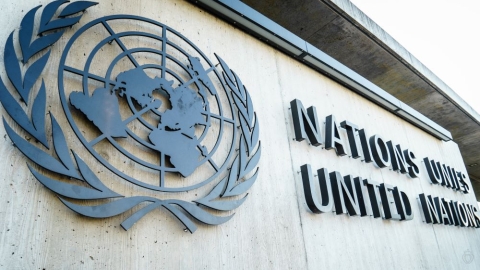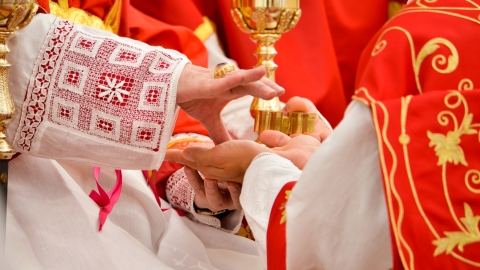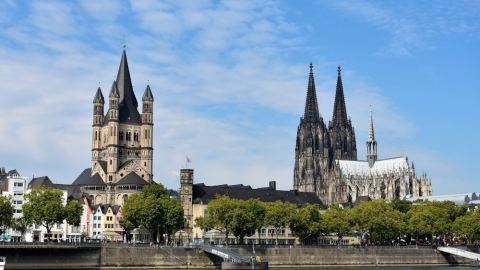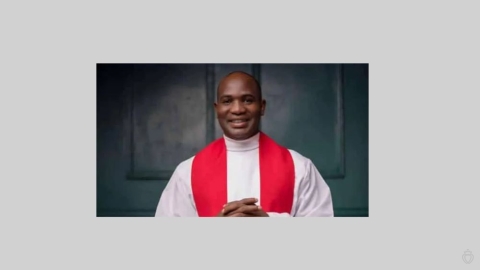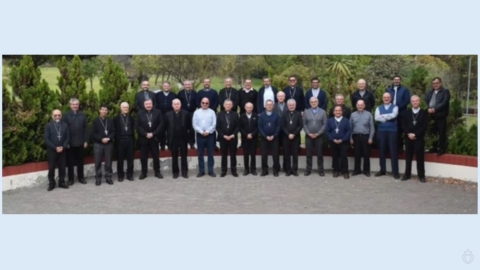Switzerland: “Civil society after Vatican II – is Christianity dead ?”

Between September 15 and 18, the University of Fribourg organized a symposium on the theme “Civil Society after Vatican II – The death of Christianity?” in which 15 experts on Catholicism took part. Claude Prudhomme, the Lyons historian, showed the aim of a Catholic missionary model developed in the 17th Century quoting Roman texts and missionary revues. “I am convinced that during the period 1965 to 2000, we have been witnessing the end of the missionary model developed in the 17th and 18th centuries, the end of the growth of the Catholic Church in the world.” Since the years of Vatican II, “Catholicism is discovering the reality of numbers.” “Catholics are becoming aware (and with them, Protestants also) that the grand Utopia of one day seeing the world totally Christian, is over. The missionary statistics are no longer increasing and the curve, on the contrary has reversed. The congregation for the Evangelization of Peoples no longer even makes allusion to it.”
“The missionary lyricism, which still marked the years 65 to 69, when the encyclical Ecclesiam suam of Paul VI (1964), ushered in expressions such as The Church makes conversation, or the Church must enter into dialogue, collapsed in the middle of the 70’s”. A first “crisis” overcame the spirit of the missions . “While remaining missionary, the Church starts to make some development.” The second “crisis”, which came in May 1968, called into question the legitimacy of the missions: “We are heading towards a socialistic Christianity, which defends the ideas of the Third World.”
The texts of Vatican II, Gaudium et Spes, Nostra Ætate, through the encyclicals of Paul VI Ecclesiam suam and Ad gentes, make reference to “the Church the people of God.” “So we pass from the concept of an institution, to an approach which is more community orientated, which will lead later to the concept of the local Church.” “The mission has become the collective responsibility of the believers and no longer the affair of the experts.” “There is no longer an official theology of the mission.” “There are elements of truth and of holiness in the other religions,” which leads “to ecumenical relations and the foundation of the Secretariat for non-Christians.”
Claude Prudhomme showed that the evangelical mission has changed “into dialogue”, where preaching only has any sense if it is based on personal experience. “We are really in a cultural change.” It is no longer about a “deposit of faith which is transmitted, but it is the experience which one has (made) of one’s faith which counts.” Which leads to painful divisions among theologians: “If everyone is a missionary, what is the point of training anyone?”, and “Where is the urgency of the Catholic mission, if everyone can be saved in their own religion?”
The Church of John Paul II, which intends to keeps its place, gives “dialogue” a prominent position. This desire for “negotiation” by the Catholic Church has led her where she did not want to go. “From now on, if there is an announcement on the faith, it is to be taken as a proposal, and not as a verity to which it is essential to adhere.” “The mission then becomes inseparable from solidarity.” “The mission in the religious sense disappears.”
The historian thus notes “a protestantization of Catholicism.” “A whole new vocabulary, since the 1970s, affirms that the mission is born out of the meeting with Jesus. Protestants feel very much at home with this.”
During the round table discussion on September 17, Jean Boissonat, former editor of the economics magazine L’Expansion and former president of Semaines Sociales of France, exposed the secularization of society through the decline of a Catholic presence in the hospital and educational environment. The Jesuit Fr. Jean-Yves Calvez presented the Christian welfare teaching, which stems from the gap between the Church and society. Fr. Patrick de Laubier, former professor of sociology at the University of Geneva, has defined Christianity as an “absolutely necessary reality bound to the Incarnation” and not a “medieval nostalgia,” he stated that the Church must not propose an economic or political Christian program, but rather Christian requirements in economics”, according to the thinking of Cardinal Journet.
